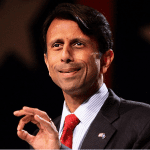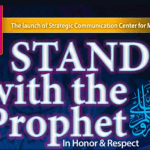Biblically-committed pastors have always been at the forefront of leading U.S. social change, calling on God for mercy, guidance, wisdom, and revival. Historically, they led both in and out of the pulpit—playing pivotal roles in the American Revolution, opposing slavery and helping orchestrate the Underground Railroad, actively registering people to vote, supporting civil rights, prison reform, poverty reform, and fighting in war and/or serving as military chaplains. Because every area of life is political, pastors have and continue to engage with politicians and hold elected office themselves.
For some reason, a false distinction has been made that presupposes Christianity, or any other faith, cannot appeal to a “secular” government. Truth is artificially separated, as if different methods exist to determine morality or ethics between the secular or the religious, contributing to the false understanding that exists today about what the “separation of church and state” means.
American laws were largely derived from Judeo-Christian principles. In fact, America would not have existed were it not for Protestant ministers who sought to protect a new nation from becoming a theocracy.
When founding father, America’s first vice president and second president, John Adams, was asked who was instrumental in gaining American independence, he answered, “the Reverend Samuel Cooper, Reverend Jonathan Mayhew, Reverend George Whitefield, and Reverend Charles Chauncey.”
The “Black Robed Regiment,” or the “Presbyterian Revolt,” was well known among the British as a formidable threat. After preaching, pastors removed their black robes, picked up their guns, and rallied others to fight. Churches were the center of the town for social gatherings and open discussion, where weapons were kept, and where the community gathered for comfort during uncertain times.
Even though ministers were fully aware of Jesus’ admonition to “Render to Caesar the things that are Caesar’s, and to God the things that are God’s,” they preached about “anti-biblical” taxes from the pulpit, and addressed Parliament from outside of it.
They did so arguing that freedoms exist because of Jesus Christ’s death and resurrection. “It is for freedom that Christ has set us free. Stand firm then and do not let yourselves be burdened by a yoke of slavery.” (Gal. 5:1)
Pastors understand that freedom of conscience, “soul libertie”—the freedom to believe in and worship God, is fundamental to every aspect of life—and—is usually the first to be censored by government.
They also understand that with freedom comes responsibility. Biblically-committed pastors teach that every person is accountable to God for their actions, which is why they advocate that people must freely serve God in a way that “best reconciles with his/her conscience.”
Governance, as Heritage Baptist Church’s former pastor Brad Cranston and founder of Iowa Baptists for Biblical Values, explains is rooted in the understanding that “a person cannot govern a society if he/she cannot govern his/herself.” He told me,
“The underlying motivation for any form of governance is the fear of God. Self-governing is aligned with biblical teaching. We are personally responsible before God for our behaviors, decisions, and actions.”
Christians act because they have something to live for that is greater than themselves, and to hear: “well done, good and faithful servant.”
But self-governance extends beyond the pulpit by building relationships and encouraging legislators. Cranston asserts,
“God himself is our motivation to do right, which is why ministers have an obligation not just to preach but to connect to legislators, encouraging them to stand up for truth.”
From January to April when the Iowa legislature is in session, Cranston and other Christians like those working for The Family Leader, meet with legislators once a week, praying with them and offering encouragement.
Iowa pastor Terry Amann has been involved in prison ministry, praying outside of abortion clinics, and actively engaged in politics for 35 years. Amann told me, “the local church is the greatest agent for social change,” asserting everything about Jesus’s life was political. Preaching about biblical values related to current events, he argues, is both integral to the gospel and applicable to congregants who are each affected by every socio-economic and political decision politicians make.
Nationwide, pastors live out their beliefs from praying with pregnant women and offering alternatives to abortion, to sustaining integrated youth activities, or providing resources to encourage biblical marriage and counseling. They are intentional in their efforts—despite receiving threats to themselves and/or family members or vandalism of personal and/or church property.
“If the gospel is worth dying for,” Amann proclaims, “it’s certainly worth living for!”
Pastors, Amann asserts, must lead from the front. Preaching and being involved in politics, is grounded in sacrifice, he explains. Christians are obligated to lead, as stewards, loving their neighbors as themselves. (Gal. 5:1; 5:13-14) Freedom provides this opportunity.
To date, those who have chosen to lead in politics include 22 ministers and one Jesuit priest who have held elected office in the U.S. Senate and House and/or as a state governor. James Lankford, a former youth pastor, U.S. Congressman, and now U.S. Senator representing Oklahoma, is one of them. He says, “I am absolutely convinced that God does not call us to an occupation, He calls us to Himself, and then He assigns us the occupation when we follow Him.”
Christians, like Lankford, understand John Quincy Adams’s assessment: “Duty is ours; results are God’s.”
No matter the role, pastors have been and will continue to be involved in every area of public life—because they understand who God is. To safeguard and sustain God-given freedoms, ministers continue to encourage spiritual men and women to be rooted in biblical wisdom, able, willing and ready to engage in public discourse, service, or as an elected official.












